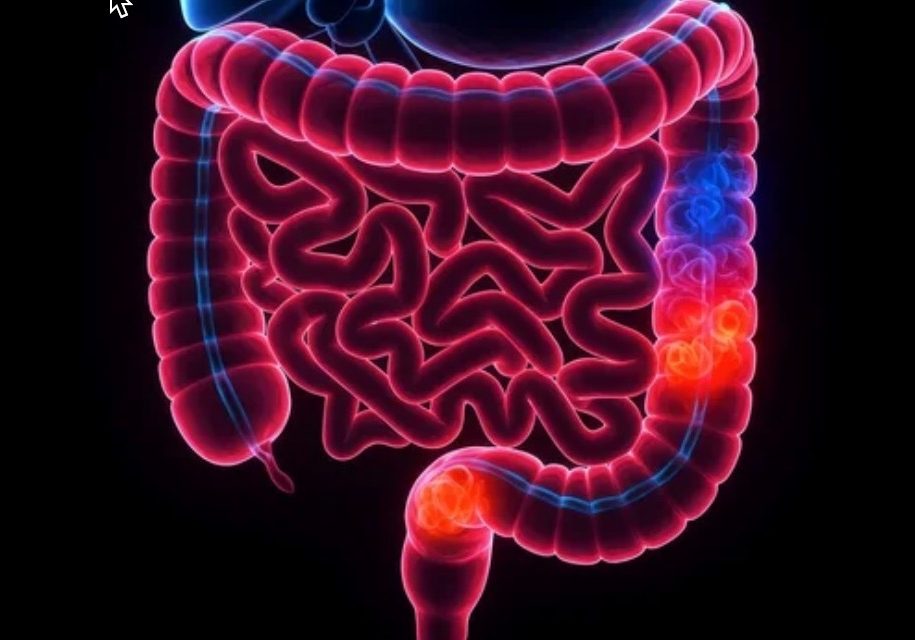
What is Crohn's Disease?
Crohn's disease is a chronic inflammatory bowel disease (IBD) that causes inflammation throughout the digestive tract. Unlike ulcerative colitis, which affects only the colon's inner lining, Crohn's disease can impact any part of the gastrointestinal system from mouth to anus, though it most commonly affects the end of the small intestine and the beginning of the colon.
The inflammation caused by Crohn's disease extends deep into the layers of affected bowel tissue, creating a patchy pattern where inflamed areas appear alongside healthy tissue. This characteristic pattern helps distinguish it from other digestive conditions.
Symptoms and Presentation
Common symptoms include persistent diarrhea, abdominal pain and cramping, blood in the stool, fatigue, and unintended weight loss. Many people also experience reduced appetite and fever during flare-ups. The disease follows an unpredictable pattern of remission and relapse, with symptom severity varying significantly between individuals.
Causes and Risk Factors
The exact cause remains unknown, but researchers believe Crohn's disease results from a combination of factors including immune system malfunction, genetics, and environmental triggers. Having a family member with IBD increases risk, and the condition typically develops before age 30. Smoking, diet, and stress may trigger or worsen symptoms, though they don't directly cause the disease.
Complications and Management
Left untreated, Crohn's disease can lead to serious complications including bowel obstruction, ulcers, fistulas, anal fissures, malnutrition, and increased colon cancer risk. Some patients also experience inflammation in joints, eyes, or skin.
While there's no cure, various treatments can effectively manage symptoms and achieve long-term remission. Treatment options include anti-inflammatory drugs, immune system suppressors, biologics, antibiotics, and nutritional therapy. Surgery may be necessary for severe cases, though it doesn't cure the disease.
Early diagnosis and appropriate treatment significantly improve quality of life for people with Crohn's disease, allowing many to lead full, active lives despite their condition.
How many people suffer from Crohn's Disease?
The prevalence of Crohn's disease varies significantly by region, but here's what we know:
Global and US Statistics
In the United States, approximately 500,000 to 780,000 people have Crohn's disease. Globally, the numbers are harder to pin down precisely, but the disease affects several million people worldwide.
Geographic Patterns
Crohn's disease is most common in:
- North America and Northern Europe, where prevalence rates are highest
- Developed, industrialized nations generally show higher rates than developing countries
- Urban areas compared to rural regions
Interestingly, the incidence is rising in newly industrialized countries in Asia, South America, and Africa, suggesting environmental and lifestyle factors play a role.
Demographic Trends
The disease affects people of all ages, ethnicities, and backgrounds, though certain patterns exist:
- Both men and women are affected roughly equally
- Most commonly diagnosed between ages 15-35, though it can occur at any age
- People of Jewish descent, particularly Ashkenazi Jews, have higher rates
- Having a family member with IBD increases individual risk
Rising Incidence
The number of people with Crohn's disease has been steadily increasing over the past several decades, particularly in previously low-incidence areas. This rise suggests that environmental factors, dietary changes, antibiotic use, and other aspects of modern life may contribute to disease development.
If you're looking for the most current statistics or region-specific data, I'd be happy to search for the latest epidemiological information, as these numbers continue to evolve as research progresses and reporting improves worldwide.

How Chiropractic Care is Helping Patients with Crohn's Disease
Chiropractic Care and Crohn's Disease: Examining the Evidence
Crohn's disease affects hundreds of thousands of Americans, causing debilitating pain, inflammation, and digestive complications. As patients search for relief beyond conventional treatments, many explore complementary and alternative medicine approaches, including chiropractic care. But what does the scientific evidence actually say about chiropractic treatment for Crohn's disease?
Understanding the Foundation
Chiropractic care focuses primarily on diagnosing and treating mechanical disorders of the musculoskeletal system, particularly the spine. Chiropractors believe that spinal misalignments, called subluxations, can affect the nervous system and overall health. Some practitioners suggest that spinal adjustments may influence the autonomic nervous system, which controls involuntary functions including digestion.
However, it's crucial to understand that Crohn's disease is a complex autoimmune condition characterized by chronic inflammation of the gastrointestinal tract. The standard medical treatments—including anti-inflammatory medications, immunosuppressants, biologics, and sometimes surgery—target the underlying inflammatory process and are backed by extensive clinical research.
The Current State of Research
The scientific evidence supporting chiropractic care as a treatment for Crohn's disease is extremely limited. A thorough review of medical literature reveals few rigorous clinical trials examining this relationship. Most available information comes from case reports or small observational studies, which represent the lowest levels of scientific evidence and cannot establish causation or widespread effectiveness.
Some case studies have reported individual patients experiencing symptom improvement following chiropractic adjustments, but these anecdotal accounts don't replace the need for well-designed, controlled clinical trials. The mechanisms by which spinal manipulation might influence intestinal inflammation remain largely theoretical and unproven.
Potential Secondary Benefits
While chiropractic care lacks evidence for directly treating Crohn's disease itself, it may offer some indirect benefits for certain patients. Many people with Crohn's disease experience musculoskeletal complications, including:
Joint pain and arthritis: Approximately 25-30% of Crohn's patients develop inflammatory arthritis as an extraintestinal manifestation. While this requires medical management, some patients find chiropractic adjustments help with associated mechanical back or joint discomfort.
Stress and tension: Chronic illness creates significant physical and emotional stress, often manifesting as muscle tension, particularly in the neck, shoulders, and back. Chiropractic care may help address these secondary musculoskeletal issues.
Postural problems: Abdominal pain and cramping can lead to protective posturing and compensatory movement patterns that strain the back and spine over time.
Important Safety Considerations
Patients with Crohn's disease should approach chiropractic care cautiously and always in consultation with their gastroenterologist. Several safety concerns exist:
Certain Crohn's complications, such as severe osteoporosis from long-term steroid use or active inflammation, may make spinal manipulation risky. Additionally, if someone relies solely on chiropractic care while forgoing proven medical treatments, they risk serious complications including bowel obstruction, fistulas, abscesses, or perforation—potentially life-threatening conditions.
No reputable chiropractor should claim to cure Crohn's disease or suggest that patients discontinue their prescribed medical treatments. Such claims represent dangerous medical advice and violate ethical healthcare standards.
The Integrative Care Approach
The most promising framework involves integrative care, where complementary therapies like chiropractic work alongside—not instead of—evidence-based medical treatment. This approach recognizes that:
- Medical treatment addresses the underlying inflammatory disease process
- Complementary therapies may help manage secondary symptoms and improve quality of life
- The patient's gastroenterologist remains the primary care coordinator for Crohn's management
- Open communication between all healthcare providers is essential
What Patients Should Know
If you have Crohn's disease and are considering chiropractic care:
Always consult your gastroenterologist first before beginning any complementary therapy. Continue all prescribed medications and medical monitoring—these remain your primary defense against disease progression. Seek chiropractors who understand inflammatory bowel disease and are willing to coordinate with your medical team. Be skeptical of practitioners making extraordinary claims about curing Crohn's disease or eliminating your need for medication.
Look for practitioners who position their care as complementary support for musculoskeletal symptoms rather than a primary treatment for the disease itself.
The Bottom Line
Current scientific evidence does not support chiropractic care as an effective treatment for Crohn's disease itself. While some patients may experience relief from secondary musculoskeletal symptoms, this should never replace proven medical interventions. The inflammatory process driving Crohn's disease requires medications that directly target immune dysfunction and inflammation.
Patients deserve honest, evidence-based information about all treatment options. Until rigorous clinical trials demonstrate otherwise, chiropractic care should be viewed only as a potential complementary approach for managing secondary symptoms in Crohn's patients—and only when pursued alongside comprehensive medical care under gastroenterological supervision.
If you are suffering from Crohn's and are seeking pain relief, contact Dr. Michael Whalen a Virginia Beach chiropractor for a FREE Consultation.
The UCC Team

Dr. Phillip Stratton
Dr. Marian James

Theresa Drescher, Admin Support
